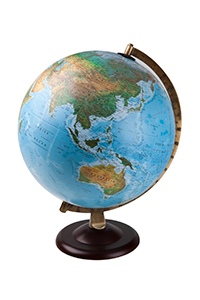
As a practice specializing in infectious diseases, we provide vaccinations for travel to countries around the world. This includes, but is not limited to, the vaccinations for Yellow Fever, Typhoid, and DTaP. We also provide certification for these vaccinations to permit travelers to leave the United States.
TRAVELERíS MEDICAL KIT
CDC Travelers' Health offers information to assist travelers and their health-care providers in deciding the vaccines, medications, and other measures necessary to prevent illness and injury during international travel. You can visit their site at http://www.cdc.gov/travel/ for additional information. Below we have put together some information that may be helpful to you. This information is designed to provide you with some answers to your questions about what to pack with you when you travel. However, in no way, should it be substituted for any medical advice.
Most travelers should pack a personal medical kit. The contents of the kit will vary depending upon the destination, the duration of the trip, the range of potential exposures, the age and health of the travelers, and the availability of medical care. The following should be considered for inclusion in the kit:
Medications
- Antibiotic for travelers' diarrhea
- Antibiotic for skin infection
- Antibiotic for respiratory infection
- Antidiarrheal drugs (e.g. loperamide, diphenoxylate, kaolin-pectin)
- Drugs for motion sickness (e.g. meclizine)
- Sleeping pills (for jet lag)
- Acetazolamide (for altitude sickness)
- Acetaminophen (Tylenol)
- Acetaminophen with codeine
- Anti-inflammatory drugs (e.g. ibuprofen)
- Antiemetic (e.g. prochlorperazine for nausea)
- Antacids or bismuth subsalicylate
- Antihistamines (e.g. Benadryl)
- Decongestants
- Antibacterial ointment for cuts or abrasions (e.g. Bactroban)
- Steroid cream (e.g. hydrocortisone 1%)
- Vaginal cream for yeast infections (e.g. miconazole or clotrimazole)
- Epinephrine injection (e.g. EpiPen) - for those with a history of allergies to insect stings or other severe allergic reactions
Note: some of the newer quinolones, such as levofloxacin (Levaquin), may be effective for all the above. Travelers unable to tolerate quinolones may need to bring along more than one antibiotic.
First aid supplies
- Bandages
- Gauze and gauze rolls
- Adhesive or paper tape
- Ace bandage
- Scissors
- Pocket knife
- Tweezers
- Thermometer
- Tincture of iodine
- Moleskin (for blisters)
Other
- Sanitary napkins
- DEET- containing insect repellent
- Permethrin-containing insect spray
- Sun block
- Sunglasses
- Hat for sun protection
- Oral rehydration salts
- Water purification tablets
- Sterile needles
- Syringes
- Condoms
From the Centers for Disease Control



